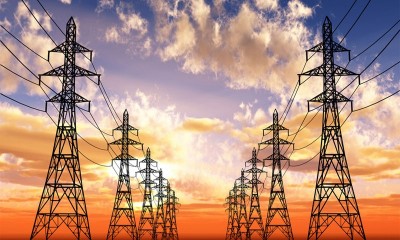- Home
- Resources
- Highlights Of The Order On The Transition To Cost Reflective Tariffs In The Nigerian Electricity Supply Industry
Highlights Of The Order On The Transition To Cost Reflective Tariffs In The Nigerian Electricity Supply Industry
Posted on Thu 2 Apr 2020
- Download Resource

On March 31, 2020, the Nigerian Electricity Regulatory Commission (“NERC”) issued the NERC Order No: NERC/198/2020 – Order on the Transition to Cost Reflective Tariffs in the Nigerian Electricity Supply Industry (the “Order”) to provide a framework for the transition to cost reflective tariffs within the Nigerian Electricity Supply Industry (“NESI”). The Order was issued in response to the applications submitted by the electricity distribution companies (“Discos”) seeking a review of the end-user tariffs in order to provide a financially sustainable NESI.
Prior to the issuance of the Order, NERC conducted public hearings where it received feedback from electricity customers (“Customers”) on their favourable disposition to paying increased electricity tariffs subject to the Discos providing guaranteed supply of quality electricity and adequate metering to Customers. NERC indicated that in issuing the Order, it considered the fact that an improvement in the NESI will demand significant investments in the distribution infrastructure and transmission facilities. NERC also considered the impact of the Covid-19 pandemic on the global economy, the provision of meters in the NESI and the average Nigerian in issuing the Order.
Key Highlights of the Order
-
Suspension of Planned Increase in Tariffs by April 1, 2020
The Federal Government of Nigeria (“FGN”)’s Power Sector Recovery Program (“PSRP”) and the December 2019 Minor Review of the Multi Year Tariff Order (MYTO) 2015 and Minimum Remittance Order for the Year 2020 (the “December 2019 Minor Review”) envisaged an increase in end-user tariffs by April 1, 2020 but the Order extends the enforcement period of the December 2019 Minor Review to June 30, 2020, thereby retaining existing tariffs.
-
Improved Service Expectations
To be eligible for full cost recovery and future tariff reviews, Discos will be required to deliver a higher quality of service to Customers (inclusive of metering) and establish service pacts with defined compensation arrangements for Customers where Discos fail to meet agreed performance targets. Additionally, each Disco is required to submit a Performance Improvement Plan (“PIP”) and a Revenue Requirement Plan (“RRP”) to NERC by April 21, 2020 which shall be the basis for the Discos’ full cost recovery and future tariff reviews.
-
Introduction of New Tariff Classes Determined by Quality of Service
Discos are required to disaggregate their respective service areas/customers in accordance with the quality of service to be delivered to such customers and to propose a corresponding graduated scale of tariffs, on the basis of the quality of service provided, for approval by NERC.
-
Metering at Delivery Points
Discos are required to install smart meters at 11kv and 33kv feeders no later than June 30, 2020 for the purpose of real time or near real time data collection by NERC.
-
Tariff Support for Discos
During the transitional period ending June 30, 2021, each Disco will become entitled to tariff support payments from the FGN to cover the difference between cost-reflective tariffs and tariffs approved by NERC.
-
Alternative Funding Arrangement
Discos are enjoined to raise financing for the required investment in distribution infrastructure by using revenues earned from ring-fenced service areas as security for loans. In addition, Discos are to explore the possibilities of improving their liquidity by engaging in third-party electricity supply arrangements such as sub-franchising areas within their networks and embedded generation.
Conclusion
We commend the NERC for issuing this timely Order as same reflects a proactive approach at addressing the various concerns of different stakeholders within the NESI. The decision to retain existing tariffs particularly in view of the Covid-19 pandemic that has affected the global economy is a welcome development that must however be closely monitored, on an ongoing basis, to ascertain its sustainability. It is expected that the current economic situation may similarly impact essential parameters for determining electricity tariffs in the NESI, such as inflation, exchange rates and metering cost, which may occasion a further review of electricity tariffs in Nigeria.
The Grey Matter Concept is an initiative of the law firm, Banwo & Ighodalo.
DISCLAIMER: This article is only intended to provide general information on the subject matter and does not by itself create a client/attorney relationship between readers and our Law Firm or serve as legal advice. We are available to provide specialist legal advice on the readers’ specific circumstances when they arise.
More Resources
-
Mon 9 Oct 2023
Nigerian Chapter of The ICLG: Private Equity 2023
-
Mon 14 Aug 2023
Nigeria Chapter Of The 11th Edition Of The Aviation Law Review









